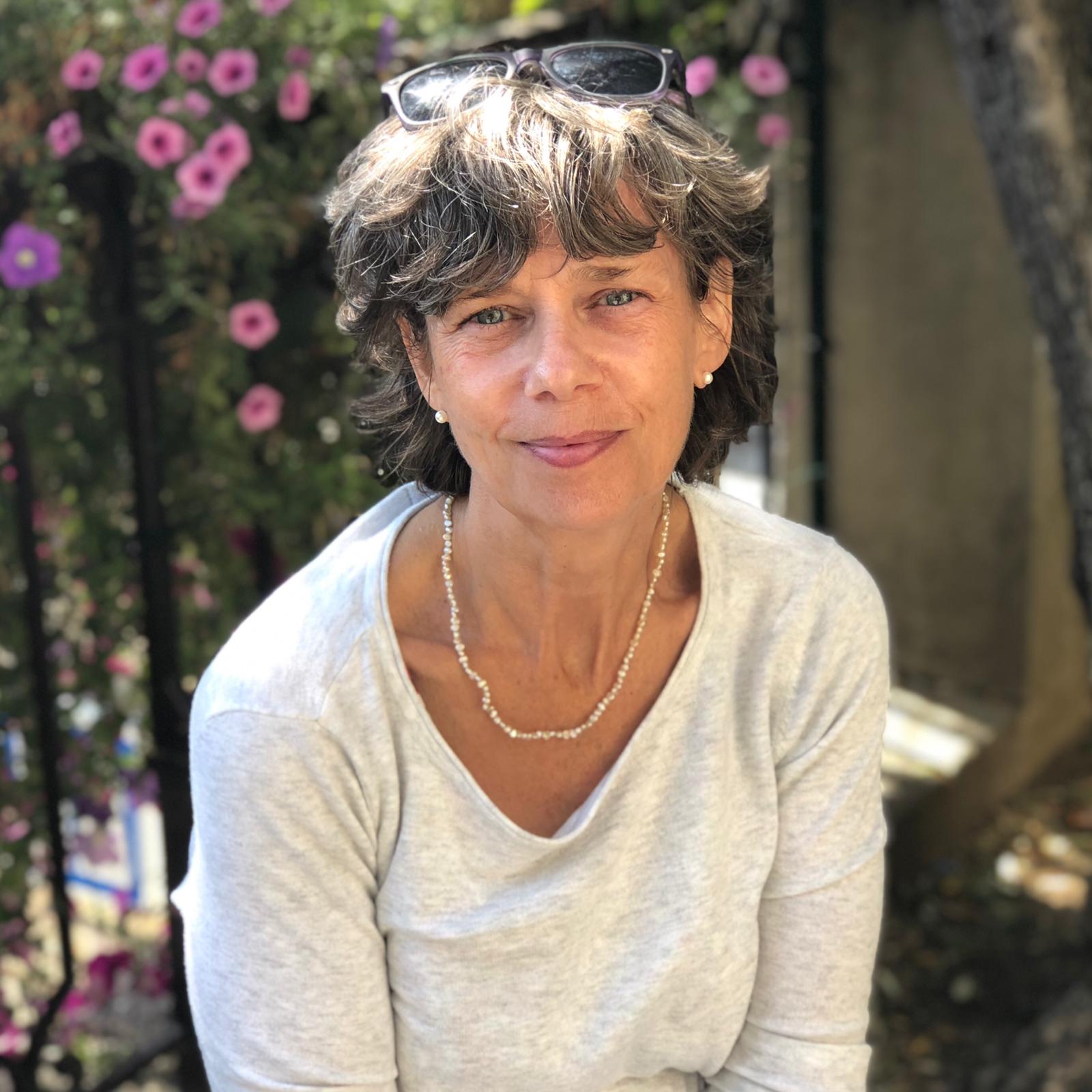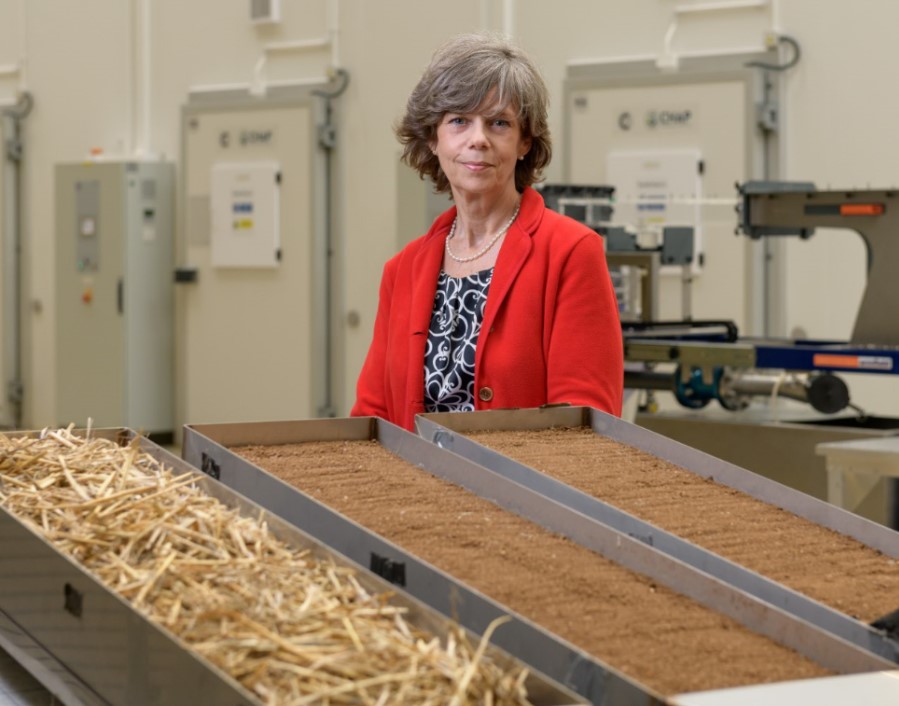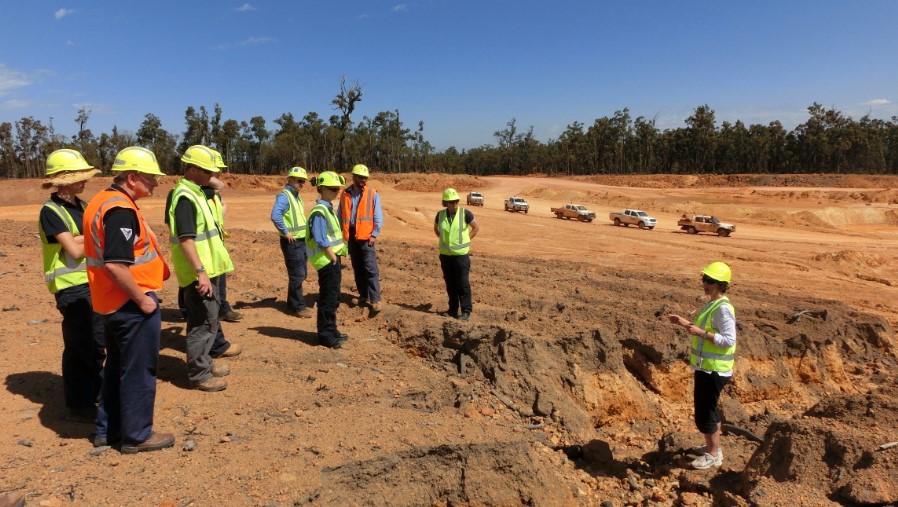A sit down with Professor Jane Rickson
26/05/2020

Can you tell us more about your area of research and the research centre you work in…
The overarching area is soil science and my research is all about understanding the value of soils. Most people see soils just as that “brown muddy dirt”, but actually soils are essential in producing our food, helping regulate our water supplies during droughts and floods and taking some carbon out of the atmosphere, so helping with climate change. My job is all about showing how valuable soils are to us as a society. If you think what you had for breakfast this morning and that 97% of our food comes from soil, it is vital we look after it and make sure we don’t degrade it. For example, the way that we produce food or change land use can damage soil.
I work in the School of Water, Energy and Power, Environment and Agrifood. Within the School I am part of an institute called the Cranfield Soil and Agrifood Institute, specialising in the theme of Environment and Agrifood.
Why did you choose Cranfield
Well, it’s a long story because I actually did my Masters at Silsoe College in the early 1980’s, when Silsoe College was part of Cranfield University. My Masters was in Agricultural Engineering. The reason I chose Silsoe (and therefore Cranfield) was that my first degree Geography is a very broad subject and I was speaking to my professor saying “What can I do with this Geography degree? I really enjoy physical geography, which studies environmental processes working in the landscape”. The prof told me I should go and study with Professor Roy Morgan, who at that time was working at Silsoe College. Roy is an Applied Geomorphologist: someone who studies landscape landforms and processes. So I did my Masters at Silsoe, specialising in soil erosion and soil conservation. When I finished my Masters I thought “Now what do I do?” and I was looking for jobs overseas, with an organisation like Voluntary Services Overseas (VSO). While I was waiting for an opportunity there, Roy Morgan said to me “I’ve got a six month Teaching Associate job, would you like to do it?” I thought “well, that will cover the next 6 months or so”….and here I am 35 years later! It’s not the same job of course, but I’m still with Cranfield and have built my career here. I love that no two days are the same and I feel very privileged that I have loved my career and what I do from day to day.
So that’s how I’ve come to Cranfield, starting out as a student and worked my way up to Chair of Soil Erosion and Conservation. This journey has helped me empathise with the students that come on our courses, and also young academics. One of my objectives/aims/reasons for being here is to support young academics moving through their career because its really tough, its really competitive out there and I want to support young people coming through their careers, just as I had support when I was developing my career.

How does your work link with industry?
One of the reasons I stayed at Cranfield is that I love that we do fundamental and applied research. Not only do I have colleagues who do very fundamental research which is really pushing the boundaries of knowledge, but a lot of our research is aimed at the end user if you like. So we work a lot with industry, whether that’s individual farmers, who come to us and say “I’ve got problems with my soils… what should I do about it? What’s wrong with my soils? How can I make them better?” We also work with agronomy companies, who want some soil management advice to then pass onto their farmer clients. We also work with advisors, so people like the Agricultural and Horticultural Development Board (AHDB), who then disseminate that information out to their growers and so on. Then we work with people like Natural England, the National Trust, the Environment Agency and a lot of my work is with the government (Defra), who are forever looking for evidence to inform new policies, especially now with Brexit, as we move away from current EU legislation. Obviously people like Defra need more advice and evidence from the scientific community, to help devise and then implement national legislation like the Environment Bill and Agricultural Bill. So I love that on the one hand we could be helping an individual farmer who just wants to chat about his problems, right through to government organisations asking about national policy as far as soil protection is concerned.
How do you bring students into your work?
We’ve had group projects where we’ve had a multi-disciplinary cohort of students looking at environmental, economical and social issues. I bring a lot of group work into my taught modules, so we might spend the first few days covering the fundamentals in a class room situation, but then I’ll give the students a consultancy type project to tackle. We will give them all the background information and the brief from the client. Over the next few days the group need to address the brief and answer the client’s questions. They will write the report as a consultancy report, so I get them to do it exactly as it would be in the real world. They’ve got apply the technical knowledge that they’ve learnt during the modules, the lectures, the seminars and so on. They also have to use real life skills: working together with people, knowing one person isn’t going to do that task (so do you not include that task and say it wasn’t down because this person didn’t do it… or do you have to cover for that person the night before because they haven’t done it?) Do you carry team members that don’t understand the brief as well as others? The technical stuff is important, but its all of those other little life skills about meeting deadlines, working in a team, motivating colleagues to perform…that’s what the students get and if we didn’t give them those real life case studies, they wouldn’t get those additional skills and I think that’s what Cranfield does really well.

One example is where Cornwall County Council asked the students for advice on an eroding mine spoil. The students had to come up with the management practices they could use and what vegetation grows in Cornwall to restore the area. The plan is to increase recreational use of the land, so the students have to gauge the demand for this from local communities. The students love this ‘real world’ approach. I love the names of the consultancy firms they come up with: they’re so witty! I love it because the students really embrace this style of learning, rather than just saying here’s another exam question.
Biggest challenge?
Finding time to do everything! One of the great things about the job is the variety of different things I do: lots of teaching, research, writing papers, business development, giving outside talks to people, going to conferences…so there are challenges in finding time to do everything. I think there are also challenges in bringing in income, because obviously a university requires revenue, but in the environment sector there isn’t a lot of loose money that clients may have to spend on research, so building relationships with clients is really important for funding. Writing papers is really important for academic development, but finding the time is a challenge because you need time to stop and think, which is what academics are meant to do… but of course that takes time, otherwise your efforts will get thrown out at peer review. I think finding the time to balance everything, prioritising things, doing things well and not letting any of the balls drop is the biggest challenge really, but that’s the excitement as well. If I was sitting around being really bored, not knowing what to do next – that would be worse. Having too many things to do is kind of a nice problem to have, but it’s just that you have to prioritise and manage your time well.
What do you love most about your role?
I find everything so interesting and I enjoy the variety. I like sitting in meetings with Defra one day, talking about high level policies and the challenges, then standing knee deep in mud the next! It’s almost the psychology of it as well as the technical. Whatever I’m actually doing throughout the day is what I enjoy most! I’m really, really fortunate to have a job I love!
What’s a typical day at Cranfield?
I can honestly say no two days have ever been the same! Every day is different, I might have teaching the first couple of hours, then have a meeting with an external client for a couple of hours. I might have a PhD student to supervise, then Masters students to meet. Because I have such a variety of things to do, the combinations of how those work out in one particular day are never going to be the same.
Can you highlight a unique experience you have had while working at Cranfield?
A couple of years ago we won the Queens Anniversary Prize for our work in soil science and environmental data. To me that was the cherry on the icing on the cake! For Cranfield to be recognised for the 40 years’ working in soil science and how we have used soil data to make an impact, to make changes in this country and overseas, would be my career highlight. I was absolutely delighted to go to Buckingham Palace to attend the award ceremony where we were presented with the Queens Anniversary Prize by Prince Charles and the Duchess of Cornwall and then to have the whole Buckingham Palace experience was just extraordinary. I was so pleased that Cranfield won the Prize as it is like the honours system for universities and I’m delighted that Cranfield has won it on so many occasions. Also, we are the first university to be awarded a Queens Anniversary Prize for soil science. It was a pleasure to be part of the team that wrote the bid and receive the award: I’m just really, really proud of that. It was the unique pinnacle of my career and I’m really pleased to be part of that.
I’m also a member of the Institution of Agricultural Engineers, which is a professional body for everybody working in land based industries. It is mainly related to agriculture, but the Institution’s membership also includes people working in environment, forestry, sports surfaces, amenity and recreation. In other words, anyone using engineering applied to land based industries can be a member of that Institution. We are a professional organisation that can register individuals to become Chartered Engineers or Chartered Environmentalists. I am honoured that I am the current President of the Institution, which celebrated its 80 years anniversary last year. I also happen to be the first female President of the Institution, which I am delighted at. I think most people’s idea of agricultural engineering is a very old fashioned one and I’ve tried in my presidency to make it more modern and a little bit more forward looking towards agri-tech including the use of drones and autonomous vehicles and all of these new technologies coming into agriculture. I think that’s what the Institution does well. My work at Cranfield is clearly relevant to the Institution (and vice versa), so I’m delighted to be President at the moment as it brings mutual benefit to both organisations.
Categories & Tags:
Leave a comment on this post:
You might also like…
Company codes – CUSIP, SEDOL, ISIN…. What do they mean and how can you use them in our Library resources?
As you use our many finance resources, you will probably notice unique company identifiers which may be codes or symbols. It is worth spending some time getting to know what these are and which resources ...
Supporting careers in defence through specialist education
As a materials engineer by background, I have always been drawn to fields where technical expertise directly shapes real‑world outcomes. Few sectors exemplify this better than defence. Engineering careers in defence sit at the ...
What being a woman in STEM means to me
STEM is both a way of thinking and a practical toolkit. It sharpens reasoning and equips us to turn ideas into solutions with measurable impact. For me, STEM has never been only about acquiring ...
A woman’s experience in environmental science within defence
When I stepped into the gates of the Defence Academy it was the 30th September 2019. I did not know at the time that this would be the beginning of a long journey as ...
Working on your group project? We can help!
When undertaking a group project, typically you'll need to investigate a topic, decide on a methodology for your investigation, gather and collate information and data, share your findings with each other, and then formally report ...
From passion to purpose: My journey at the Pinnacle of Aviation
By: Sultana Yassin Abdi MSc Air Transport Management, Current Student Born and raised in the vibrant landscape of the UAE, with roots stretching back to Somalia, my life has always been ...






